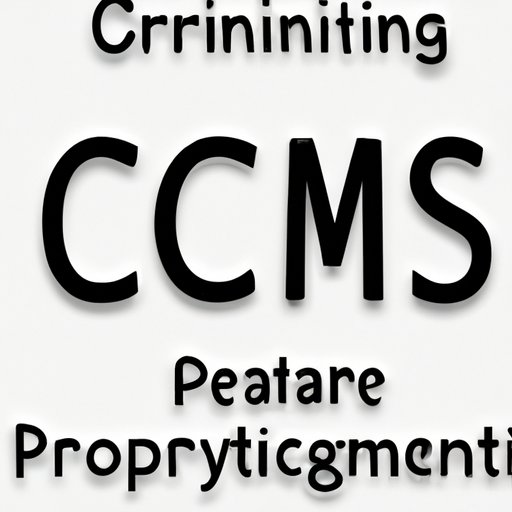Introduction:
Creative Commons (CC) is an international non-profit organization that provides free legal tools for content creators. It was founded in 2001 to enable people to share and use creative works legally and ethically. Creative Commons licenses provide a simple, standardized way for content creators to grant permission to others to use their work without having to negotiate individual agreements. The licenses also ensure that creators retain control over how their work is used and credited.
Exploring Creative Commons: What is it and How Can It Benefit You?
Creative Commons is a licensing system that allows creators to share their work online without worrying about infringing on someone else’s copyright. It enables creators to decide exactly how they want their work to be used by others. For example, they can choose to allow others to remix, adapt, or build upon their work, as long as they give appropriate credit. Through Creative Commons, creators can also choose to allow commercial use of their work, or restrict it to non-commercial use only.
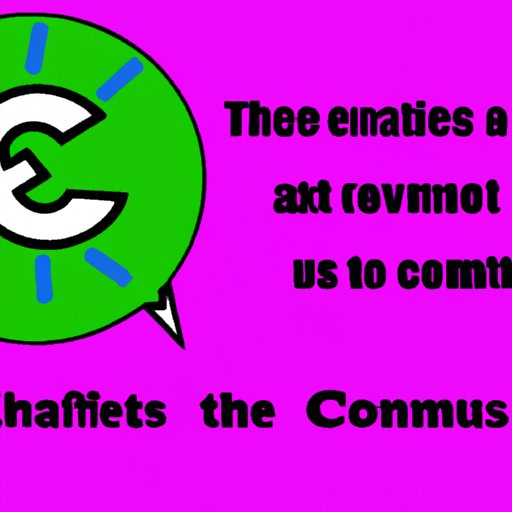
The Benefits of Using Creative Commons
There are numerous benefits to using Creative Commons licenses. First and foremost, it provides creators with a way to protect their work and still make it available to the public. It also allows creators to receive proper attribution for their work, which can be beneficial in terms of promoting their brand and gaining recognition. Furthermore, Creative Commons licenses make it easier for others to find and use content legally, which can help to reduce copyright infringement. Finally, the use of Creative Commons licenses can foster collaboration and the sharing of ideas, which can lead to new and innovative creations.
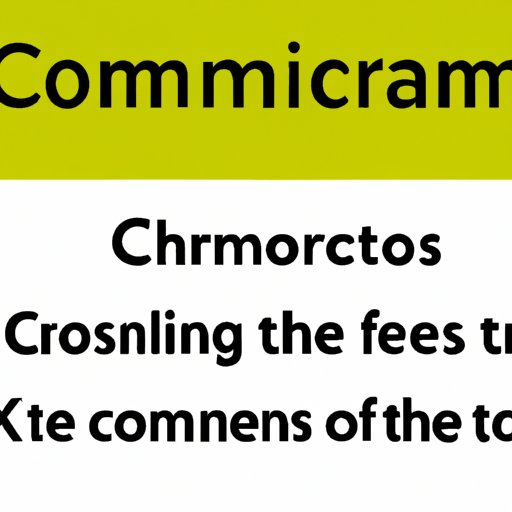
Creative Commons: A Guide to Understanding and Using the Licensing System
Creative Commons licenses are made up of three components: the Attribution (BY), ShareAlike (SA), and NonCommercial (NC) clauses. These clauses determine how the work can be used and shared. The Attribution clause requires that users must give credit to the creator of the work. The ShareAlike clause allows users to remix, adapt, or build upon the work, as long as they share the resulting work under the same license. The NonCommercial clause restricts the use of the work to non-commercial purposes only.
Types of Licenses
Creative Commons offers six different types of licenses, each with its own combination of clauses. The most basic license, CC BY, allows users to copy, distribute, and create derivatives of the work as long as they give proper credit to the creator. The next level of license, CC BY-SA, adds the ShareAlike clause. This means that any derivative works must be shared under the same license. The third level of license, CC BY-NC, adds the NonCommercial clause, restricting the work to non-commercial uses only. The fourth level of license, CC BY-ND, restricts users from creating any derivative works. The fifth level of license, CC BY-NC-SA, combines the NonCommercial and ShareAlike clauses. Lastly, the sixth level of license, CC BY-NC-ND, combines the NonCommercial and NoDerivatives clauses, completely restricting the use of the work.
Choosing the Right License for Your Work
When choosing a Creative Commons license, it’s important to consider how you want your work to be used. If you want your work to be widely shared and remixed, then a CC BY or CC BY-SA license is likely the best option. If you want to restrict commercial use of your work, then a CC BY-NC or CC BY-NC-SA license is the better choice. And if you want to limit the use of your work to just viewing and downloading, then a CC BY-ND or CC BY-NC-ND license is the best option.
How to Use a Creative Commons License
Using a Creative Commons license is easy. All you have to do is attach the appropriate license to your work. This can be done by including the license information in the work itself, or by linking to the license on the Creative Commons website. Once the license is attached, anyone who views or downloads the work will know how it can be used.
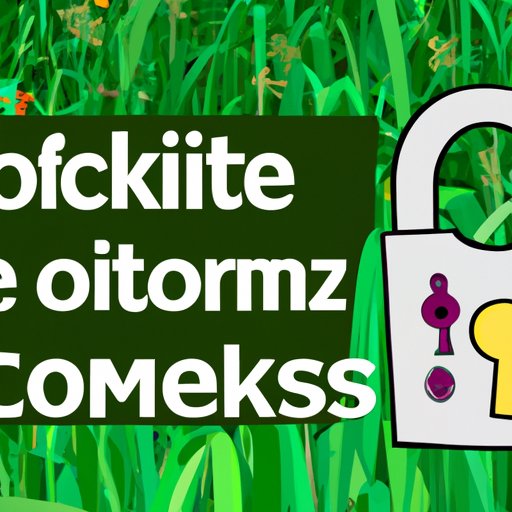
Creative Commons: Unlocking the Potential of Open Licensing
Open licensing has become increasingly popular in recent years, as it allows creators to share their work freely with the world. Open licensing also enables collaboration between creators, allowing them to build upon each other’s work and create something new. Creative Commons licenses are a great way to take advantage of open licensing, as they provide creators with a simple, standardized way to share their work.
Benefits of Open Licensing
Open licensing has numerous benefits for creators. It encourages creativity and collaboration, as it makes it easier for creators to build upon each other’s work. It also allows creators to reach a wider audience, as their work can be easily shared and viewed by millions of people. Additionally, open licensing can be beneficial to businesses, as it allows them to access a larger pool of content to use in their products or services.
How to Leverage Open Licensing
To take full advantage of open licensing, it’s important to understand how to leverage it effectively. First, it’s important to select the right license for your work. Then, it’s important to make sure that the license is properly attributed and linked to the work. Finally, it’s important to monitor and enforce the license, as this will help to ensure that your work is used appropriately.
Creative Commons: A Tool for Enhancing and Protecting Your Creative Work
Creative Commons can be a powerful tool for enhancing and protecting your creative work. By using a Creative Commons license, you can ensure that your work is used appropriately and that you receive proper credit for your work. Additionally, Creative Commons licenses can help to protect your work from unauthorized use, as they specify how the work can be used and shared.
Understanding Copyright Protection
In addition to using Creative Commons licenses, it’s important to understand how copyright law protects your work. Copyright law grants creators the exclusive right to reproduce, distribute, and display their work. This means that anyone who uses your work without your permission is infringing on your copyright. To help protect your work from unauthorized use, it’s important to register your work with the U.S. Copyright Office.
Using Creative Commons to Help Protect Your Work
Creative Commons licenses can help to protect your work from unauthorized use. By attaching a Creative Commons license to your work, you can clearly specify how your work can be used and shared. This will help to ensure that your work is not used inappropriately or without your permission. Additionally, Creative Commons licenses can help to deter copyright infringement, as they provide clear guidelines for how the work can be used.
Creative Commons: An Introduction to This Unique Copyright Alternative
Creative Commons is a unique copyright alternative that offers creators the ability to share their work freely with the world. It provides a simple, standardized way for creators to grant permission to others to use their work, while still retaining control over how their work is used and credited. Creative Commons licenses also offer creators the added benefit of copyright protection, as they specify how their work can be used and shared.
Overview of Creative Commons
Creative Commons is an international non-profit organization that provides free legal tools for content creators. It offers six different types of licenses, each with its own combination of clauses. These clauses determine how the work can be used and shared. Creative Commons licenses enable creators to share their work online without worrying about infringing on someone else’s copyright.
How to Get Started with Creative Commons
Getting started with Creative Commons is easy. All you have to do is choose the right license for your work and attach it to your work. This can be done by including the license information in the work itself, or by linking to the license on the Creative Commons website. Once the license is attached, anyone who views or downloads the work will know how it can be used.
Conclusion
Creative Commons is a unique copyright alternative that offers creators the opportunity to share their work freely with the world. It provides a simple, standardized way for creators to grant permission to others to use their work, while still retaining control over how their work is used and credited. Creative Commons licenses also offer creators the added benefit of copyright protection, as they specify how their work can be used and shared. With Creative Commons, creators have the power to share their work with the world and protect it from unauthorized use.
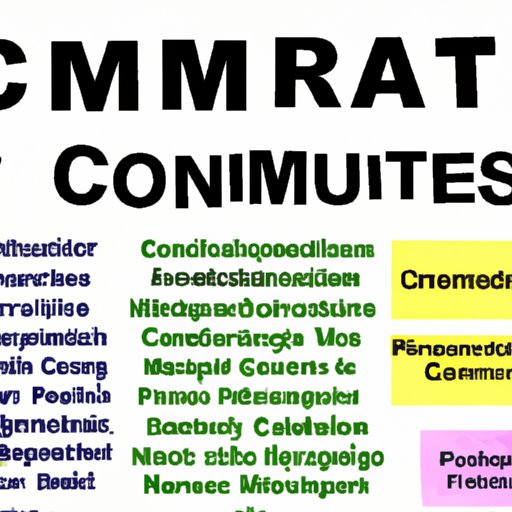
Summary of Creative Commons
Creative Commons is an international non-profit organization that provides free legal tools for content creators. It offers six different types of licenses, each with its own combination of clauses. These clauses determine how the work can be used and shared. Creative Commons licenses enable creators to share their work online without worrying about infringing on someone else’s copyright. Additionally, Creative Commons licenses can help to protect the creator’s work from unauthorized use.
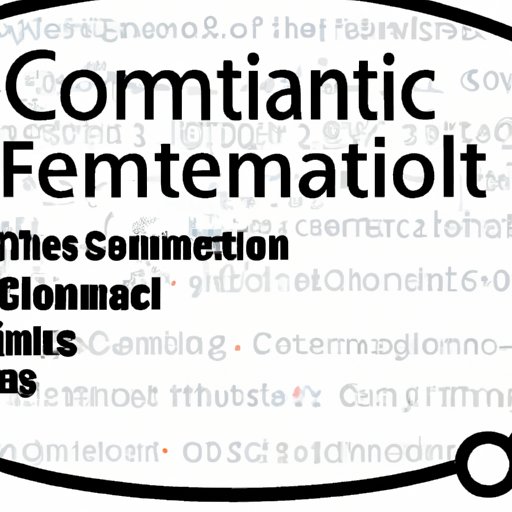
Final Thoughts on Creative Commons
Creative Commons is a great tool for content creators looking to share their work with the world. It offers creators the ability to control how their work is used, while still allowing them to receive proper attribution for their work. Additionally, Creative Commons licenses can help to protect creators’ work from unauthorized use. With Creative Commons, creators have the freedom to share their work with the world and protect it from misuse.
(Note: Is this article not meeting your expectations? Do you have knowledge or insights to share? Unlock new opportunities and expand your reach by joining our authors team. Click Registration to join us and share your expertise with our readers.)
